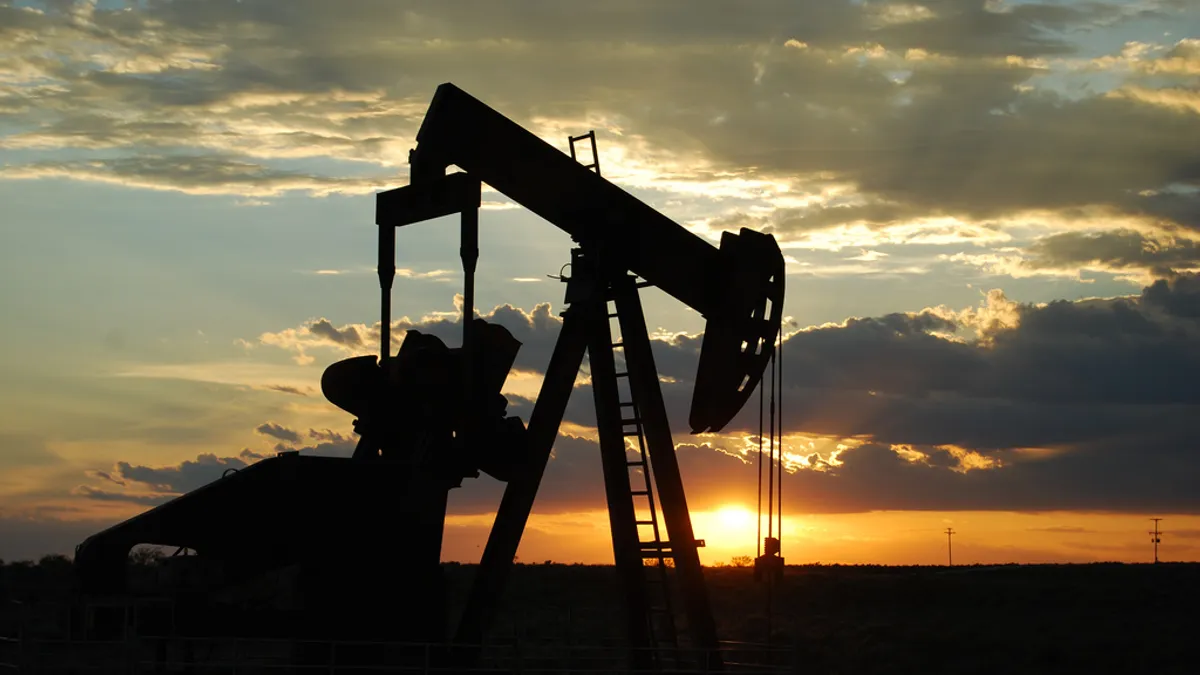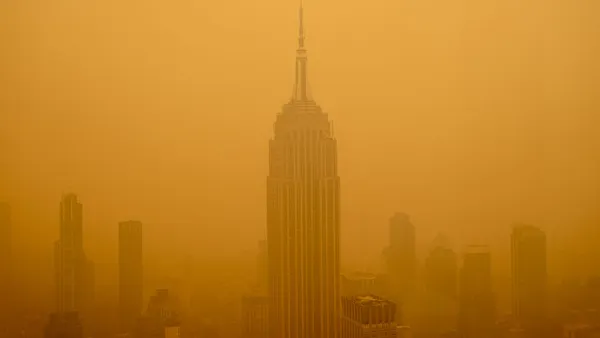UPDATE, July 20, 2018: U.S. District Judge John Keenan dismissed New York City's lawsuit against five major oil companies on Thursday, as reported by Bloomberg. The judge ruled that the federal Clean Air Act controls emissions and the problem of climate change can only be addressed by Congress and the executive branch.
"The immense and complicated problem of global warming requires a comprehensive solution that weighs the global benefits of fossil fuel use with the gravity of the impending harms," Keenan wrote.
While The Hill reports that many of the large oil companies "hailed" the ruling, a spokesman for New York Mayor Bill de Blasio said the city intends to appeal the decision.
Dive Brief:
- New York Mayor Bill de Blasio announced on Wednesday two actions to go after fossil fuel companies for their contributions to global warming: The city will divest its pension funds from fossil fuel companies, and it will sue five major oil companies.
- The lawsuit against BP, Chevron, ConocoPhillips, Exxon Mobil and Royal Dutch Shell seeks billions of dollars in damages for the city's past and future resiliency measures to protect citizens from the effects of climate change that it says the companies contributed to.
- The estimated $5 billion divestment from the city's five pension funds — worth a total of $189 billion — will take place over the next five years. It involves securities from more than 190 fossil fuel companies.
Dive Insight:
The lawsuit claims the five companies' business practices have contributed to about 11% of the greenhouse gases produced in the U.S. since the Industrial Revolution. It points to evidence that the companies, and the industry as a whole, knew of the damages they were causing and of the harm caused by burning fossil fuels, yet they misled the public by trying to hide that information while continuing work to expand the use of fossil fuels and increase profits.
"[W]e’re bringing the fight against climate change straight to the fossil fuel companies that knew about its effects and intentionally misled the public to protect their profits. As climate change continues to worsen, it’s up to the fossil fuel companies whose greed put us in this position to shoulder the cost of making New York safer and more resilient," Mayor de Blasio said in a statement.
The damages the lawsuit seeks are for resiliency measures on infrastructure such as coastal protections, water and sewer upgrades and heat mitigation. Hurricane Sandy, for example, required huge infrastructure investments and that storm is one whose intensity is viewed by scientists as worsened by climate change. The lawsuit also covers public health issues such as campaigns to inform and protect citizens from extreme heat. The city is already putting in place a $20 billion resiliency program to protect against hotter temperatures, more intense storms and rising sea levels.
San Francisco and Oakland brought a lawsuit against the same five oil companies in September. Like New York, those cities are coastal and therefore more sensitive to sea level rise. They also sought damages for resiliency measures.
These lawsuits are not the first to be brought against fossil fuel companies for climate change, but previous ones have not been successful. This could, however, set off a wave of similar lawsuits due to the presence of stronger climate science and the emergence of fossil fuel industry documents showing how what some companies knew about their climate change contributions.













